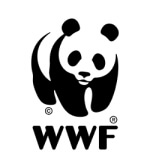The 23rd National Tuna Congress, led by the SOCSKSARGEN Federation of Fishing and Allied Industries, Inc. (SFFAII), was held last August 31-September 1, 2023, at the Tuna Capital of the Philippines – General Santos City. With the Theme: “Adapting Strategies Responsive to Global Changes,” the congress focused on the Philippine Tuna Industry’s resolve to protect tuna fishing as a livelihood through resilience, sustainability, and collaboration.
WWF-Philippines has been a long-time supporter of the congress, often promoting sustainable fishing by showcasing community wins and sustainability efforts. In last year’s congress, the organization shared the tedious decade-long journey of the Philippine Tuna Handline Partnership (PTHP) to achieve the Marine Stewardship Council Certification for partner communities in the Lagonoy Gulf and Mindoro Strait – the first in the Philippines.
This year, WWF-Philippines through the European Union (EU) funded Project Buhay: Tuna Habambuhay, Dagdag Hanapbuhay, highlighted the importance of equitability in sustainability. Melody Melo-Rijk, Project Buhay’s Project Manager, emphasized that “when fishers earn enough, they can go beyond worrying about survival and have the capacity to practice sustainability.”
The organization will continue working towards sustainable tuna fishing, and at the same time, zoom out and explore interventions beyond tuna. This aims to diversify tuna fishers’ income and lessen dependence on tuna, which could address the seasonality of tuna fishing and help dwindling tuna stocks recover. This approach is in line with the Philippines’ commitment to a sustainable blue economy, which is the use of marine resources for economic growth, improved livelihoods, and the development of jobs while preserving the health of our oceans. “The current strategies being implemented by WWF-Philippines through Project Buhay focus on two things – 1) Tuna Habambuhay: Maximizing our existing tuna catch by reducing post-harvest losses; and 2) Dagdag Hanapbuhay: Helping our tuna fishers earn a living wage by diversifying their income,” shares Melo-Rijk.
Since the project’s launch in 2022, it has conducted several knowledge-sharing sessions, consultations and collaborations with tuna value chain players in Occidental Mindoro, including tuna fishers, fish buying stations, women, tuna exporters, local government units, and many more. Interventions being implemented focus on providing support and guidance instead of direct involvement in operations and businesses. “In WWF, we don’t believe in dole-outs. This is because true sustainability means that the community remains in charge of their own growth,” says Melo-Rijk.
Still in the early stages of implementation, the organization hopes to share the results of their interventions in next year’s congress and invites stakeholders to work together towards a sustainable tuna industry and a sustainable Philippine blue economy.




